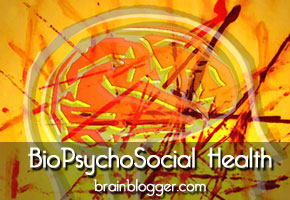The Increasing Influence of Biopsychosocial Medicine
March 22, 2008 | By Lindsey Kay, MD
The biopsychosocial model of health and disease was originally a fringe idea, and is still criticized by some. But its popularity is growing as more healthcare professionals and patients recognize the link between emotional health and physical disease. A recent literature search on Medline, the U.S. government database of medical literature, found 1,973 articles relating to the biopsychosocial model, with 433 published within the last three years alone.
The variety of medical conditions to which the biopsychosocial model has been applied is staggering. Among the recently published articles are the usual entities — depression, anxiety, chronic pain, sexual dysfunction, fatigue. But biopsychosocial medicine is beginning to take hold in far-reaching areas, including spina bifida, asthma and cancer.
As a recent graduate of a U.S. medical training institution, I can vouch for the emphasis now placed on psychological factors related to physical health. Unlike 50 years ago, physicians-in-training are becoming more attuned to the effect of stress, fatigue and mental states on the ability of the body to heal itself. Science is, in many ways, backing up the premise of the biopsychosocial models. Reports of stress affecting the immune system and the gastrointestinal tract are now frequent findings in medical literature.
The reductionist model of medicine is still the basis of understanding the pathophysiology of disease and development of treatment for most medical problems, but this is not in direct contrast to the ideas of the biopsychosocial theory. Proponents of the theory point to the effects of poor mental health on wound healing and rates of infection, and molecular biology supports this idea by demonstrating aberrant activity in the immune system of stressed animals and humans. The two are not mutually exclusive, but instead complimentary. Biopsychosocial ideas provide the link between depression and pain, and biological sciences demonstrate exactly how this link functions.
Future generations of doctors will likely continue to be trained in a system that places heavy emphasis on biological research and molecular mechanisms of disease, but the biopsychosocial model will grow in its influence as it is recognized as a true factor in health and disease. There is no need to choose one over the other — both reductionist and biopsychosocial thinking can be mutually supportive in the proper practice and growth of human medicine.
Offering multiple perspectives from many fields of human inquiry that may move all of us toward a more integrated understanding of who we are as conscious beings.
Pages
▼
Wednesday, September 17, 2008
Brain Blogger - The Increasing Influence of Biopsychosocial Medicine
A nice post from Brain Blogger (from back in March) on the increasing prevalence of Biopsychosocial Medicine, a kind of integral approach to medicine.
Tags:

AQAL Journal's Fall 2006 issue has a paper by Baron Short called "AQAL: Beyond the Biopsychosocial Model".
ReplyDeleteThanks for the heads up! I had actually downloaded that ages ago and never read it.
ReplyDeletePeace,
Bill